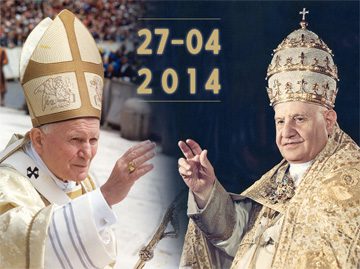As you probably know, John Stott died on Wednesday, at ninety years of ago. He was an amazing man who influence on the church throughout the world is vast. A brilliant theologian and a deeply caring pastor, Stott help the church to be more truthful and more loving, and to see its mission in broad, transformational terms.
 I did not know John Stott well. In fact, we met only once, and talked together for perhaps two minutes, thirty-five years ago. Yet, that conversation changed the course of my life. Allow me to explain
I did not know John Stott well. In fact, we met only once, and talked together for perhaps two minutes, thirty-five years ago. Yet, that conversation changed the course of my life. Allow me to explain
I went to Harvard College in 1975. During the second semester of my freshman year, I took a New Testament class from a professor at Harvard Divinity School. He was a brilliant teacher and a kind man, yet his views of the New Testament were deeply troubling to me as a person of Christian faith. He seemed to be undermining my confidence in Scripture as God’s Word.
As the class proceeded, I began to wonder if I just shouldn’t study the Bible in an academic manner. Perhaps faith and reason really weren’t compatible. Yet I realized that I would never be satisfied with my faith if I thought it was intellectually untenable. A part of me even felt drawn to continue my studies in the New Testament. Yet, I feared that my quest for historical truth would chip away at my faith. I was in a quandary and did not know where to turn.
God provided help in the form of John Stott. He visited Harvard in the latter part of my freshman year, right in the midst of my struggle with my New Testament course. A friend hosted an informal dessert for Dr. Stott and invited me to attend. Here was my chance, I thought, to talk with someone who could understand my dilemma.
My first impression of Dr. Stott was that he seemed old and wise. In fact, he was almost exactly my age right now. My second impression was that he was genuine, thoughtful, and gracious. I thought I might risk talking with him about my struggles in my New Testament course.
At the dessert, I finally had my chance. “Dr. Stott,” I said, “I’m taking a New Testament class right now and I’m really struggling. Much of what I’m being taught contradicts what I believe about the Bible. I’m beginning to wonder if it’s unwise to study Scripture in an academic way. Yet, to be honest, part of me would like to take more classes in New Testament, maybe even pursuing a graduate degree in the subject. Yet I’m afraid that what I learn will undermine my faith. What do you think I should do?”
“I can understand your conflict and your fear,” Dr. Stott began, “because I’ve felt them myself. Many of the popular theories in New Testament scholarship do challenge orthodox Christianity.”
“But,” he continued, “you don’t have to be afraid. I want to tell you something that will give you confidence as you study: All truth is God’s truth. There isn’t anything true about the Bible that God doesn’t already know. You don’t have to fear that, if you dig deeply to find truth, you’ll end up undermining your faith. Of course many of the superficial teachings of current New Testament scholarship are hostile to faith. But as you go beneath the surface and plumb the depths, you won’t find anything that damages genuine Christianity. You may indeed discover that some of your beliefs aren’t correct. In fact, I hope you do make this discovery, many times over. That’s what happens when you live under biblical authority. But you never have to be afraid of seeking the genuine truth because all truth is God’s truth.”
With John Stott’s encouragement, I not only finished my New Testament course with my faith intact, but I began a lifelong journey of seeking the truth about Scripture. I did indeed take more New Testament classes, ultimately earning a Ph.D. in this field. How grateful I am for the wisdom and counsel of John Stott.
Epilogue
Thirty-five years later, I continue to benefit from Dr. Stott’s theological depth and breadth. Earlier this year, Laity Lodge hosted a retreat on the topic of vocation: God’s calling to serve him in all we do. I was one of the teachers for this retreat, along with Dr. Steven Garber of the Washington Institute. In preparation for our teaching, Steve suggested that we re-read the first chapter of John Stott’s classic work, Christian Mission in the Modern World. Reading Stott once again, I was impressed with his sweeping vision, his gracious ecumenism, and his biblical commitment. Moreover, I was encouraged by his conviction that vocation stands at the center of our Christian life in the world.
So, whether as an 18-year-old college student, or a 54-year-old Bible teacher, I thank God for John Stott, for his extraordinary life as one who spoke the truth in love.











